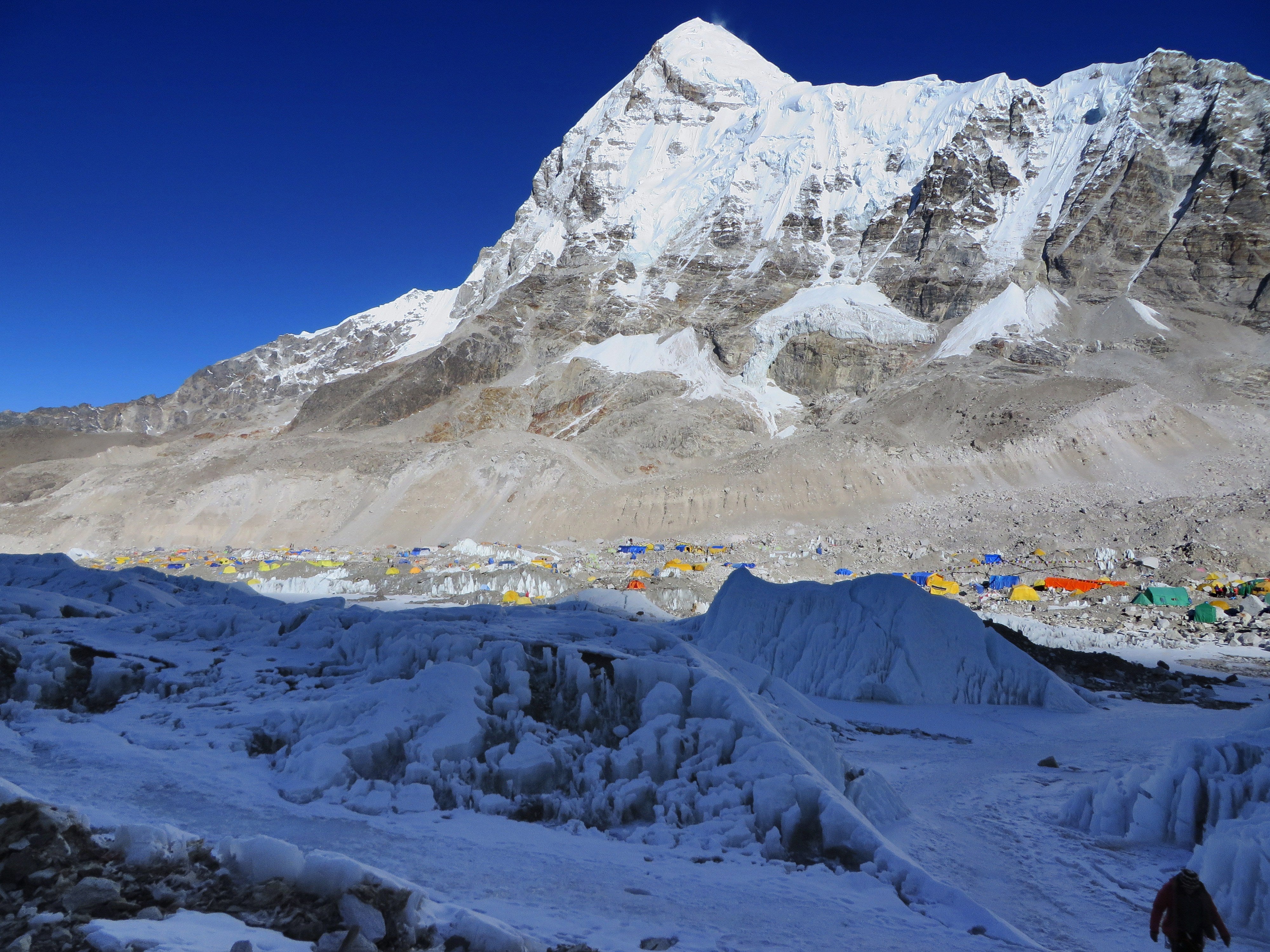Everest climbers told to bring poo bags to summit as officials say mountains ‘stinking’
Climbers will be ordered to present their full poo bags for checking upon return to base camp, to prove nothing has been left behind on the summit
Your support helps us to tell the story
From reproductive rights to climate change to Big Tech, The Independent is on the ground when the story is developing. Whether it's investigating the financials of Elon Musk's pro-Trump PAC or producing our latest documentary, 'The A Word', which shines a light on the American women fighting for reproductive rights, we know how important it is to parse out the facts from the messaging.
At such a critical moment in US history, we need reporters on the ground. Your donation allows us to keep sending journalists to speak to both sides of the story.
The Independent is trusted by Americans across the entire political spectrum. And unlike many other quality news outlets, we choose not to lock Americans out of our reporting and analysis with paywalls. We believe quality journalism should be available to everyone, paid for by those who can afford it.
Your support makes all the difference.Everest climbers will now be obliged to bring their excreta back to base camp in poo bags after summiting the world’s tallest mountain, with authorities in Nepal finally cracking down on the mess left behind by mountaineers.
The new regulation comes amid mounting complaints about the volume of human waste lining the routes up the mountain, which is prevented from degrading naturally by the extreme cold temperatures.

The local municipality of Pasang Lhamu announced that climbers will be required to purchase poo bags at base camp which will be “checked upon their return”.
The rule applies to climbers of Mount Everest and Mount Lhotse, which is connected to Everest via the South Col.
The issue of human excreta has been a matter of concern for Nepal authorities for years as more and more permits are issued every year which then, experts say, lead to overcrowding on the mountains.
Such initiatives have already successfully been implemented on other mountains, such as Mount Denali in Alaska, and have reportedly been welcomed by Everest expedition operators.
The authorities say the new rule will be introduced in the lead-up to this year’s climbing season in Nepal, which starts in March and lasts until May.
Mingma Sherpa, the chairman of Pasang Lhamu rural municipality which covers much of the Everest region, told BBC News: “We are getting complaints that human stools are visible on rocks and some climbers are falling sick. This is not acceptable and erodes our image.”
He added: “Our mountains have begun to stink.”
According to the Sagarmatha Pollution Control Committee, it is estimated that there are around three tonnes of human waste scattered between camp one, located at the base of Everest, and camp four, which is closer to the summit.
Chhiring Sherpa, the chief executive of the organisation said: “Half of that is believed to be in South Col, also known as camp four.
“Waste remains a major issue, especially in higher up camps where you can’t reach.”
The issue of overcrowding is still something the authorities have not dealt with. Last year Nepal granted a record-breaking 478 climbing permits for the mountain, attracting over 1,500 climbers, guides, and support personnel to the region.
The previous record was 409 for 2021.
The Sagarmatha Pollution Control Committee is reportedly procuring approximately 8,000 poo bags from the US, which will be distributed among climbers, sherpas, and support staff. Each person will be allotted two bags, designed for multiple uses.
These bags are equipped with chemicals that solidify human waste and significantly reduce its odour.
Jonathan Reilly, director of the British Expedition Company, which organises treks to Everest base camp, told the Telegraph: “The waste on Everest is ridiculous.
“The question I have is, will climbers bring the poo bags back down the mountain or will they just discard them up there, a bit like dog walkers throwing away plastic bags of dog poo? That would be worse than the current situation because the bags will make it impossible for the waste to biodegrade.
“I suspect there will be some climbers who use the bags and then dump them rather than bring them down the mountain.”
But others expressed hope. “It certainly is a positive thing, and we will be happy to play our part to make this successful,” Dambar Parajuli, president of the Expedition Operators Association of Nepal, told the BBC.
Nepal has eight of the world’s 14 highest peaks. According to Nepal’s Ministry of Tourism, until 14 May last year, the government generated revenues of $5.8m from mountain tourism, $5m from Everest alone.
Last year also marked the 70th anniversary of Tenzing Norgay Sherpa and Edmund Hillary’s successful first ascent of Everest.
Join our commenting forum
Join thought-provoking conversations, follow other Independent readers and see their replies
Comments